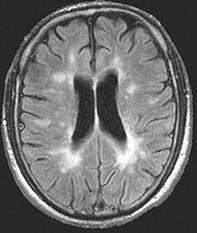Peer Reviewed
Feature Article Neurology
Multiple sclerosis: early diagnosis and comprehensive management
Abstract
The GP has a key role in the early diagnosis of multiple sclerosis (MS). Knowledge of the characteristic time course of the symptoms of an attack of MS allows the GP to suspect a first episode and refer the patient early to a neurologist, ophthalmologist or urologist.
Key Points
- MS is an autoimmune disease, with genetic factors and environmental factors having important roles.
- Characteristically, MS affects the spinal cord, brain and optic nerves in the central nervous system and spares the nerve roots and peripheral nerves in the peripheral nervous system.
- Usually MS has a relapsing–remitting course with repeated neurological episodes, each followed by partial or complete recovery and a period free of new symptoms. Most patients with relapsing–remitting MS eventually develop secondary progressive MS, with progressive deterioration independent of relapses.
- In about 10% of patients, MS follows a primary progressive course, with progressive deterioration from onset without discrete attacks.
- Interferon beta and glatiramer acetate reduce the attacks of relapsing–remitting MS by one-third but are not beneficial in primary or secondary progressive MS.
- Major depression occurs at some stage in 50% of patients with MS; a high index of suspicion is needed to ensure early diagnosis and treatment.
Purchase the PDF version of this article
Already a subscriber? Login here.

